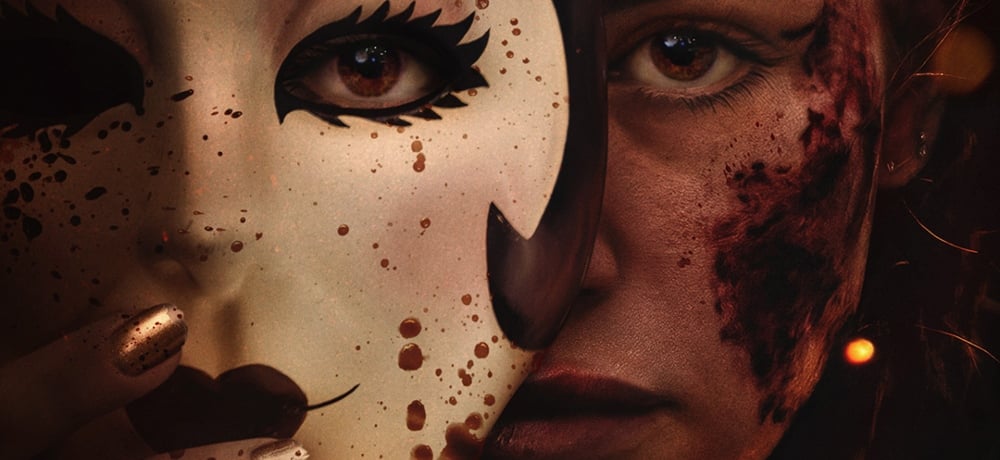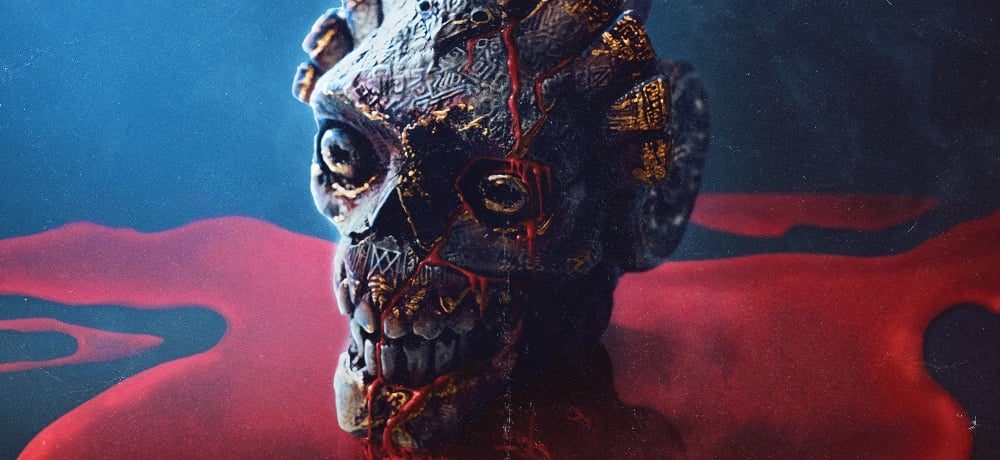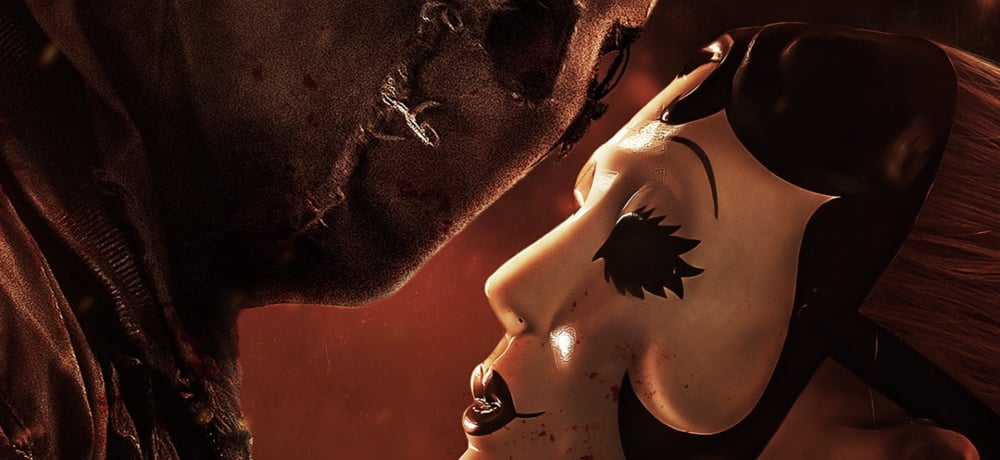





If I haven’t made it clear in previous articles or on social media, let me do so now: I’m a firm believer that Lucio Fulci is one of, if not the, greatest horror directors to ever live. While dismissed as a schlock artist by critics in his time, Fulci’s unique brand of horror, borne from a holy fusion of market-friendly gore and surrealist pure cinema, has aged remarkably well. But before he mingled among zombies or cracked open the gates of hell, Fulci directed a few violent giallo films, including the incredibly depressing Don’t Torture a Duckling, which recently received a new restoration and Blu-ray release from Arrow Video.
Don’t Torture a Duckling isn’t your usual giallo. While it has all of the signatures of the sub-genre—red herrings, black gloves, sexuality—the conventions and tropes are slightly skewed. Instead of taking place in the modern cityscapes of ’70s Rome, Don’t Torture a Duckling focuses on the small Italian village of Accendura, an extraordinarily Catholic town overseen by the local church and teeming with a seedy, sexual underbelly. After a young boy is kidnapped one night, both the local police commissioner (Virgilio Gazzolo) and intrepid journalist Andrea Martelli (Four of the Apocalypse’s Tomas Milian) run parallel investigations to uncover the kidnapping, which soon spirals into a series of grisly child killings.
Let’s not beat around the bush here: Don’t Torture a Duckling is dark, even for a Lucio Fulci film. Neither Fulci’s gaze nor The New York Ripper scribe Gianfranco Clerici’s script shy away from capturing some of the most despicable actions a human could possibly perform, and the unspoken taboo of never killing a child on film is repeatedly violated with extreme prejudice. However, it should be noted that unlike Fulci’s aforementioned stomach-churning misanthropic duck-related giallo, The New York Ripper, Don’t Torture a Duckling softens the level of nastiness (although, to be fair, few things are as unpleasant as Ripper) while still boasting a streak of righteous anger, dead-set on skewering the Church’s sexual hypocrisy and patriarchal societies through giallo trappings and twisted genre conventions.
As per usual Fulci form, it’s also incredibly graphic. While the giallo genre was never one to shy away from carnage, Fulci is particularly ruthless, showing violent murders in all their gory detail. Shockingly, with the exception of a scene where a villain literally gets their face scraped off against a rock, Fulci doesn’t revel in his violence or use it for spectacle, instead opting to make it tragic and unappealing. There’s a solid ten-minute stretch in the third act where a main character is brutally beaten by locals based on the town’s prejudices that is easily the most heart-wrenching thing Fulci’s ever directed (not that there’s much competition), and disgusting on a level greater than the skin-deep gross-outs of his other films.
Much like Fulci’s violent western Four of the Apocalypse, the scenes of brutality and the overwhelmingly depressing content are juxtaposed with Cannibal Holocaust DP Sergio D’Offizi’s picturesque cinematography, creating an uncomfortable dissonance between the content and the cinematography as well as helping support the film’s themes of lost innocence and how even supposedly pure men can succumb to violence. Adding to the dissonance is the beautiful soundtrack by the master of dissonant soundtracks, fellow future Cannibal Holocaust collaborator Riz Ortolani.
Riz’s score, Sergio’s photography, Gianfranco’s work on the screenplay, and Fulci’s direction all manage to meld together in a startling display of contrasts, helping elevate a grisly, pulpy murder mystery to some truly disturbing levels. The back of the Arrow release claims that Don’t Torture a Duckling is Fulci’s masterpiece, and while I may not agree with that sentiment 100% (The Beyond and Contraband will always have my heart), there’s no question that it’s among his finest outings.
On the technical side of things, the Blu-ray itself is quite good, living up to the usual high quality of Arrow releases. The transfer, while showing the occasional flicker of grain here and there, is a feast for the eyes, showing D’Offizi’s work in its proper glory. The audio is nothing to sneeze at either, and while this critic is not a sound engineer by any stretch of the imagination, I couldn’t hear a great deal of flaws besides a few minor distortions, all of which I can count on one hand. The subtitles on the other hand, are a tad more flawed. While there aren’t any noticeable spelling or wild translation errors, a few bits of background dialogue do bafflingly lack subtitles, such as a prayer recited by the children at the start or the angry chant of a mob swarming a suspect.
Like most Arrow releases, the package is also helped by the lure of some seriously impressive bonus features. The most revealing of which are, naturally, the interviews with cast and crew, the best of which are rare audio logs where the director himself discusses his career, the philosophy of his films, and the general state of genre circa 1989. Beyond just his career rundown, there are some real fascinating nuggets included in these tapes, ranging from his views on children to criticisms of Stanley Kubrick and Dario Argento. They’re a blast to listen to, and while they don’t delve super deep into Don’t Torture a Duckling specifically, there’s enough good stuff here that is revealing about the man’s life and opinions to be of worth to Fulci newcomers and super fans alike.
Besides just interviews with the cast and crew, there’s also a good deal of critical content included on the disk and in the liner notes. Most prominent of the bunch is the audio commentary by So Deadly, So Perverse author Troy Howarth, which cuts deep into the careers of practically everyone involved in the film, as well as taking a look at the movie’s content and themes. Said themes are deeper explored in an interview with genre critic Mikel J. Koven, and characteristically stacked liner notes look at a rundown of the film’s plot and the music of Riz Ortolani.
Perhaps the most fascinating of the critical content included is the video essay Hell is Already in Us by Diabolique Magazine’s Kat Ellinger, who aims to both analyze the feminist themes of the oft-dismissed giallo, as well as show Fulci’s films as proper works of gothic fiction. It’s an incredible essay, the sort of work that demonstrates some of the best film criticism has to offer, analyzing not only the text, but the literary and cultural influences on it. For anyone interested in good film criticism (and, since you’re reading Blu-ray review paragraphs about extras, I assume you are), this essay is something of the Blu’s holy grail.
The bonus content offered here is really next level compared to most Blu-ray releases, and I can safely say it’s great enough to make up for the tiny stumbles in the subtitle work. It’s a great release of an even greater film, and one no Fulci aficionado nor giallo nut will regret having on their shelf.
Movie Score: 4.5/5, Disc Score: 4/5